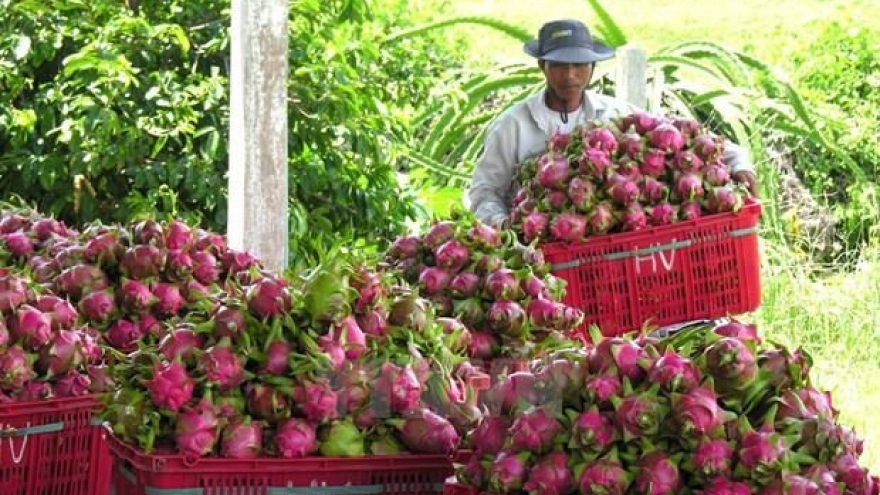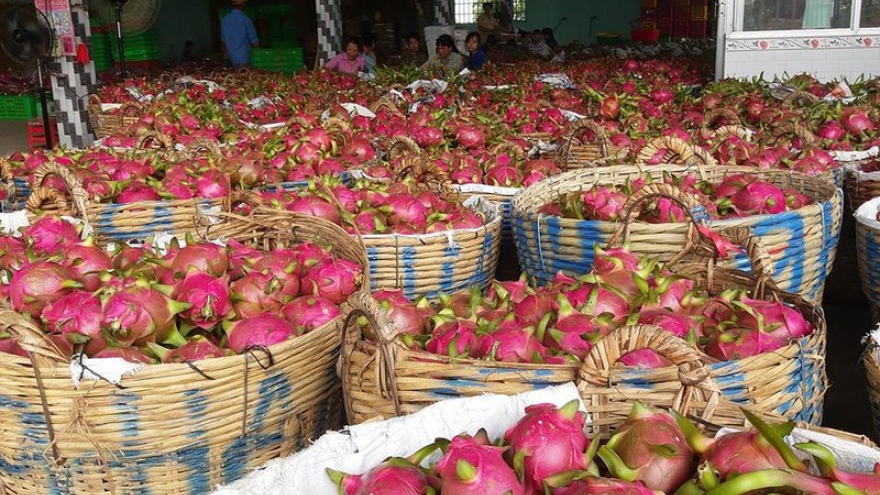Priority given to dragon fruit exports through Lao Cai border gate
The management board of the Lao Cai Economic Zone has instructed the local authorised agencies to give priority to the export of dragon fruit through Kim Thanh Border Gate to minimise wasted time and ensure the quality and value of the fruit.

The main harvest season of dragon fruit has begun in central and southern provinces in Vietnam with increasing volume of the fruit transported to Kim Thanh Border Gate in the northern province of Lao Cai to ship to China.
Ha Duc Thuan, vice chairman of the management board of the Lao Cai Economic Zone, said that an average of 150 container trucks carrying dragon fruits with an estimated volume of 3,000 tonnes travel through Kim Thanh Border Gate each day to transport the fruit to China.
Relevant forces including the customs agency, border guard, and plant quarantine and medical quarantine forces are working together to conduct both customs clearance, security checks and quarantine procedures at the border gate to ensure both the prevention of the COVID-19 pandemic and the acceleration of customs clearance for fresh dragon fruit.
Because the Chinese side has implemented strict anti-COVID-19 measures and strict border trade procedures for Vietnamese dragon fruit, the clearance time has been extended, resulting in a reduction in the amount of cleared goods.
Thus, the management board of the Lao Cai Economic Zone proactively arranged two parking areas to gather trucks carrying fresh fruit and have upgraded the warehouses of local logistics companies to facilitate the gathering of trucks carrying dragon fruit.
Tran Anh Tu, Deputy Director of the Customs Division at the Lao Cai border gate, said that the import-export revenue through the border gate since early this year has reached 73% of the figure from the same period last year, of which, the export revenue measured 62% of that from the same period last year.
Approximately 355,000 tonnes of dragon fruit have been exported through the border gate, equivalent to 72% of the volume from the same period in 2019, Tu noted.



